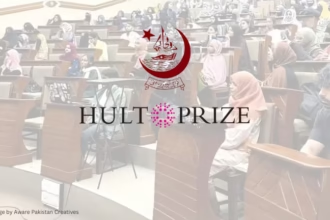As the 10th-anniversary celebration of the Belt and Road Initiative (BRI) unfolded in Beijing, discussions centered on the future of the project. Central Asia emerged as a crucial focus for the BRI, with details surfacing about various agreements forged between Central Asian nations and China on the sidelines of the Beijing event.
Kazakh President Kassym-Jomart Tokayev, during his visit to China to celebrate the BRI, sealed 30 commercial agreements worth around $16 billion. These agreements covered investments, trade, technology transfers, and credit lines. A standout deal aims to quintuple the capacity of the Trans-Caspian International Transport Route (TITR), enabling the transportation of 500,000 containers annually. Tokayev emphasized that Kazakhstan manages approximately 85 percent of all land transit traffic from China to Europe. The government has allocated $35 billion for highway development over a 15-year period. Additionally, the government plans to lay down 1,300 kilometers of new railway tracks within three years.
Data from Kazakhstan’s Ministry of National Economy revealed that Kazakh-Chinese trade turnover from January to August 2023 reached $19 billion, marking a 23 percent increase from the previous year’s $15.5 billion. However, the growth is primarily one-sided: Kazakh exports to China amounted to $9 billion, a modest uptick of 2.1 percent from the same period in 2022. Conversely, imports from China to Kazakhstan totaled $10 billion, reflecting a significant 49.5 percent year-on-year increase, according to the ministry’s report. Interestingly, Jiang Wei, Consul General of the People’s Republic of China in Almaty, presented significantly different trade figures, suggesting a possible link to issues such as smuggling and corruption.
Following his participation in Belt and Road Initiative-related events in Beijing in mid-October, President Tokayev traveled to China’s westernmost Xinjiang Province. There, he held talks with the regional Communist Party leader, Ma Xingrui. Official reports state that their discussions centered on increasing trade and fostering tourism. Notably, this province, sharing a border with Kazakhstan, contributed to over 40 percent of China’s total trade with Kazakhstan in the first half of 2023.
On November 10, a bilateral agreement enabling visa-free travel for 30 days between Kazakhstan and China will become operational, as declared by Kazakhstan’s Foreign Ministry.
After a private discussion with Xi in Beijing, Uzbekistan’s leader, Shavkat Mirziyoyev, announced a remarkable fivefold surge in Chinese investments within Uzbekistan over recent years. He articulated the aspiration to elevate the annual trade turnover to $20 billion. The meeting revolved around discussions concerning “promising projects” in metallurgy, electrical engineering, and various other sectors. Uzbekistan and China formalized numerous agreements, although specific details remained limited. Notably, Uzbekistan’s Ministry of Energy and China’s State Energy Administration committed to deepening collaboration in renewable energy sources. Likewise, the Uzbek Ministry of Digital Technologies and China’s Ministry of Industry and Informatization expressed keen interest in partnering on infrastructure connectivity, communication networks, 5G technology, network security, and information technologies. Additionally, China Southern Power Grid International and Uzbekhydroenergo JSC finalized a deal surpassing $1 billion for the construction of the Yukori Pskem hydroelectric power station, boasting an impressive capacity of 600 MW.
In the first three quarters of 2023, China emerged as Uzbekistan’s primary trade ally, marking a significant milestone. According to data released by the Uzbek governmental statistical agency, bilateral trade reached a substantial value of $9.45 billion during this period, signifying a remarkable 36.2 percent surge compared to the corresponding timeframe in 2022. Noteworthy was Uzbekistan’s export volume to China, amounting to $1.85 billion, while imports surged to a substantial $7.59 billion. Following China in the trade hierarchy was Russia, which reported a turnover of $7.03 billion, reflecting a notable 6 percent year-on-year uptick. Kazakhstan secured the third position with a trade value of $3.22 billion, experiencing a marginal decline of 1.5 percent compared to the 2022 figures. The overall trade turnover for the January–September period soared to $44.8 billion, marking an impressive 22 percent increase over the previous year’s statistics. However, Uzbekistan still faced a trade deficit, with exports accounting for $17 billion and imports significantly higher at $27 billion within the $44.8 billion total trade volume.
During the Belt and Road Forum, Gurbanguly Berdymukhamedov led Turkmenistan’s delegation and signed significant yet ambiguous agreements in Beijing. These included a broadly phrased pact focusing on “technical and economic cooperation.” Turkmenistan’s state news agency, Turkmenistan: Golden Age, emphasized a memorandum of understanding between the State Customs Service of Turkmenistan and China’s customs agency. The objective is to strengthen the Authorized Economic Operators Program. Simultaneously, an analysis published in China Daily stated that progress on Line D of the China-Central Asia gas pipeline, connecting Turkmenistan to China through other Central Asian nations, is swiftly underway. Upon its completion, the fourth line is anticipated to boost annual natural gas export capacity by 30 billion cubic meters.
Tajikistan and China recently inked a pact to engage in “counterterrorism drills” biennially. The agreement focuses on enhancing the coordination of command and control entities overseeing specialized anti-terrorism units.







